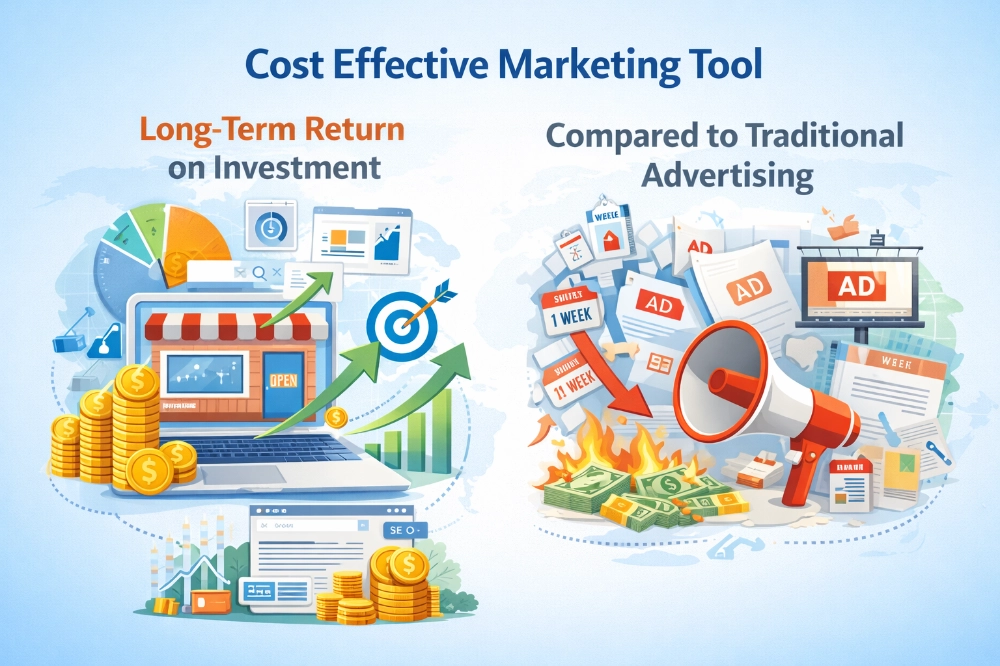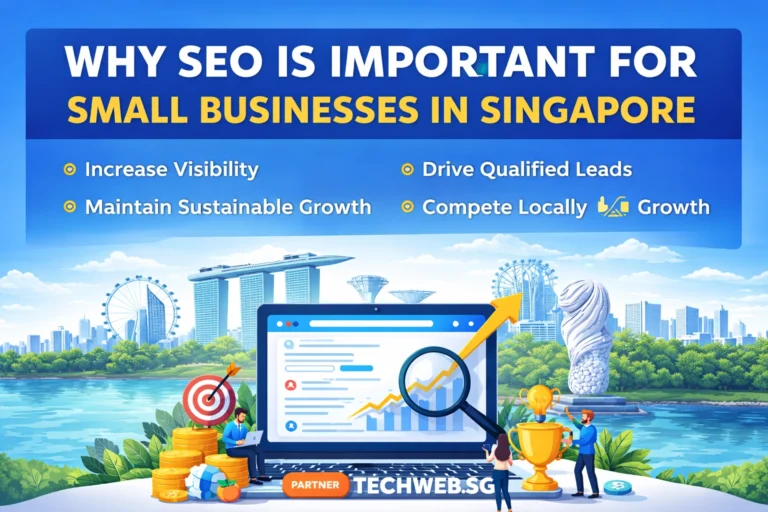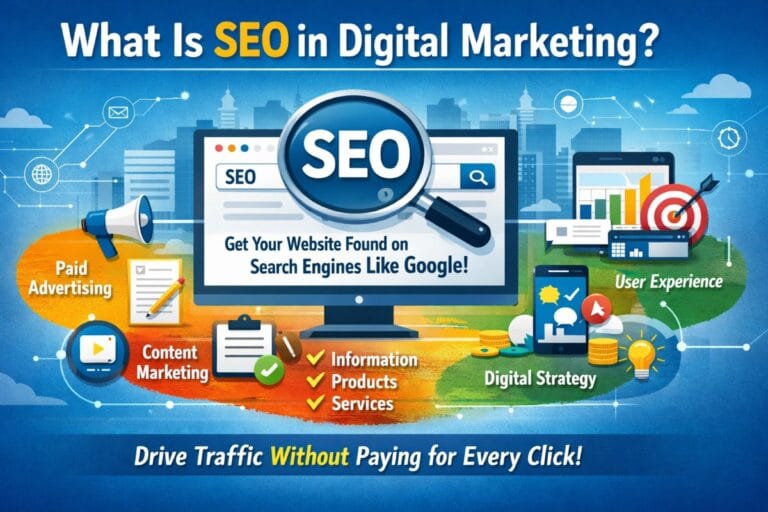Introduction: Why Your Business Needs a Website in 2026
Why your business needs a website is no longer a topic for debate. In today’s digital world, a website is one of the most important tools a business can have. Customers expect to find businesses online, research them easily, and understand what they offer before making contact.
When people search for products or services, they usually start online. If your business does not appear in search results, you risk losing potential customers to competitors who do. This reality alone explains why your business needs a website in 2026.
A website acts as your digital home. It builds trust, provides information, supports marketing, and helps customers choose your business with confidence.
The Digital Shift in Modern Business
Consumer Behavior Has Changed
Customer habits have changed permanently. People now research businesses online before making decisions, even when they plan to buy locally. Reviews, service descriptions, pricing, and credibility signals all influence purchasing choices.
Without a website, your business loses the chance to influence that decision. This shift in behavior clearly explains why your business needs a website today.
Online Search Is the First Touchpoint
Search engines are often the first interaction customers have with a brand. A website allows your business to appear in search results, answer questions, and establish trust early in the buyer journey.
According to research published by Google, most consumers research online before contacting a business. This makes a website essential rather than optional.
Builds Credibility and Trust Instantly
First Impressions Matter
A professional website creates a strong first impression. Clean design, clear content, and easy navigation signal that your business is legitimate and reliable.
When customers cannot find a website, they may question whether a business is trustworthy. This is another clear example of why your business needs a website today.
Websites vs Social Media Pages
Social media pages are helpful, but they are not enough on their own. You do not control social platforms, and changes to algorithms can reduce your visibility overnight.
A website gives you full control over branding, messaging, and customer experience. This control is one of the strongest reasons why your business needs a website.
Your Business Is Open 24/7
Always Available Information
A website allows customers to learn about your business at any time. They can view services, read answers to common questions, and contact you outside of business hours.
This constant availability improves customer satisfaction and explains why your business needs a website even if you already have physical locations.
Customer Convenience
When information is easy to find, customers feel more confident. Convenience reduces friction and increases the likelihood that visitors will contact or choose your business.
Improves Visibility on Google
Search Engine Presence
Search engines rely on websites to understand and rank businesses. Without a website, your business has very limited visibility in organic search results.
This alone shows why your business needs a website to compete effectively online.
Local SEO Benefits
A website optimized for local search helps nearby customers find your business. When combined with a Google Business Profile, your website strengthens local visibility and authority.
A Website Drives Business Growth
Lead Generation
One major reason why your business needs a website is lead generation. Contact forms, booking tools, and inquiry pages allow interested visitors to take action immediately.
Your website works continuously to turn visitors into potential customers.
Sales and Conversions
Even if sales happen offline, a website influences decisions. Customers often visit a website before calling, visiting, or making a purchase.
This makes the website an essential part of the sales process.
Cost Effective Marketing Tool: Why Your Business Needs a Website for Long Term Growth

Long Term Return on Investment
This is one of the strongest reasons why your business needs a website. A website continues to deliver value long after it is launched. Unlike paid advertising, which stops producing results when budgets run out, a website works continuously.
Once built, maintenance costs are relatively low. Over time, this makes a website one of the most cost effective marketing tools available.
As content grows, the value compounds. A single article or service page can attract traffic for years.
Compared to Traditional Advertising
Traditional advertising is often expensive and short lived. When a campaign ends, visibility disappears immediately.
In contrast, a website paired with search engine optimization creates lasting visibility. This difference clearly shows why your business needs a website instead of relying only on traditional advertising.
Control Your Brand Narrative
Brand Messaging
A website allows you to clearly explain who you are, what you do, and why customers should trust you. You control the message, tone, and positioning.
This control is another important reason why your business needs a website.
Visual Identity
Consistent colors, fonts, and layout help customers recognize and remember your brand. A strong visual identity builds professionalism and trust.
Gain Valuable Customer Insights
Analytics and Tracking
Websites provide data on visitor behavior, popular pages, and traffic sources. These insights help you understand what customers care about most.
Smarter Decisions
Data-driven decisions reduce guesswork. This is yet another reason why your business needs a website as part of a smart growth strategy.
Competitive Advantage
Standing Out
Many businesses still lack professional websites. Having one immediately sets you apart and positions your business as established and credible.
Staying Relevant
Markets evolve quickly. A website helps your business adapt, share updates, and remain competitive over time.
Frequently Asked Questions (FAQs)
1. Why does my business need a website if I already use social media?
This is exactly why your business needs a website. Social media platforms are not owned by you. A website gives full control, stability, and long term credibility.
2. Is a website necessary for small or local businesses?
Yes. This is why your business needs a website even if it is small. Customers search online before choosing local services.
3. How much traffic can a business website get?
Traffic depends on optimization and competition. Even low traffic can produce high quality leads, which explains why your business needs a website.
4. Does having a website really increase sales?
Yes. Websites educate customers, build trust, and guide decisions. This is a major reason why your business needs a website.
5. How long does it take to see results?
Credibility improves immediately. Search traffic usually grows within three to six months.
6. Is a website expensive to maintain?
No. Ongoing costs are predictable and usually much lower than advertising expenses.
7. What pages should every business website include?
At minimum: Home, About, Services or Products, Contact, and Privacy Policy.
8. Can a website help my business appear on Google?
Yes. Search engines rely on websites to index and rank businesses. This clearly shows why your business needs a website.
Conclusion: Why Your Business Needs a Website Now
Why your business needs a website comes down to trust, visibility, control, and sustainable growth. A website is your digital foundation and one of the most valuable assets your business can have.
It helps customers find you, understand what you offer, and choose your business with confidence. From building credibility to generating leads and supporting long-term marketing efforts, the reasons why your business needs a website are clear and compelling.
If you are ready to take the next step and build a strong online presence, explore TechWeb’s professional web design and digital solutions to see how the right website can support your business goals.
In today’s digital economy, understanding why your business needs a website is not optional. It is essential.





